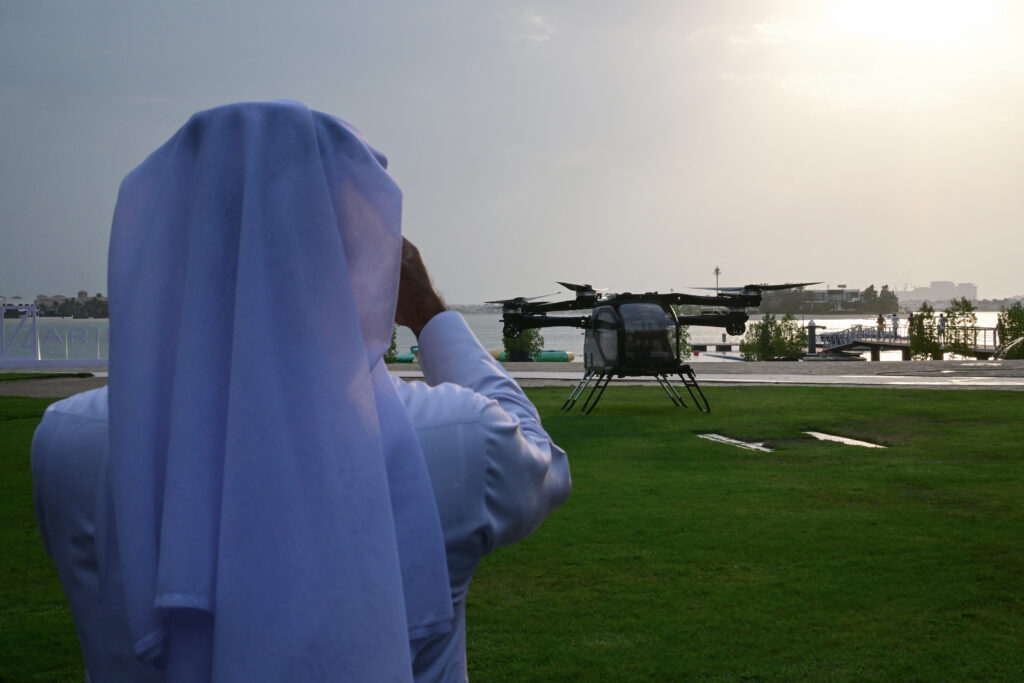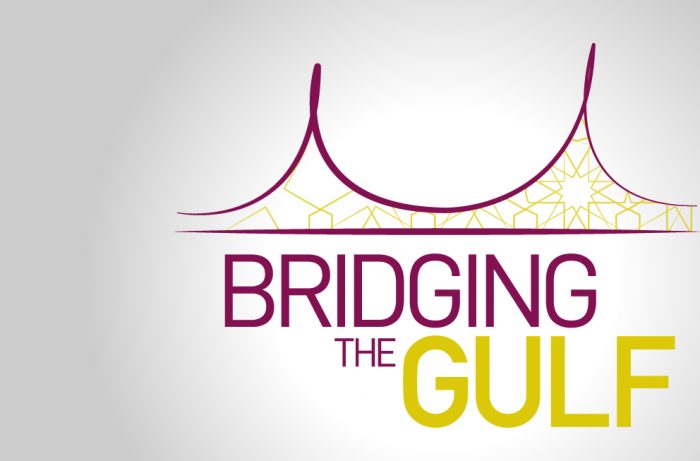
- 06 Nov 2025
Bridging the Gulf
About the Series
Beyond the headlines, what else do we know of the Arab states of the Persian Gulf? Are these societies as conservative as many have perceived them to be? Is Dubai just about its spectacular architecture? How does leadership transition work in these dynastic monarchies? Did you know that most Gulf cities were once port towns, much like the Singapore of old? Or that Singapore leaders who travel on commercial flights are regarded with puzzlement by Gulf citizens, who are used to seeing their own leaders on private jets?
In this webinar series, we invite experts, some of whom are native to the region itself, to shed light on the history, politics and culture of the Gulf states. More than fun facts, the series will provide a refreshing perspective of the changes in these societies.
All are welcome to participate. This event is free, however, registration is compulsory. Successful registrants will receive a confirmation email with the details closer to the date of the event.
. . . . . . . . . . . . . .
Completed Sessions
Session 1 (Friday, 23 April 2021): Politics, Energy, and Opposition in the Gulf: What You Need to Know
Speaker: Dr Jessie Moritz, Australian National University
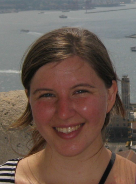 Dr Jessie Moritz is a Lecturer at the Centre for Arab and Islamic Studies at the Australian National University. She has previously held a postdoctoral fellowship at Princeton University, as well as visiting positions at KFCRIS in Riyadh, Qatar University and the University of Exeter. Her current research focuses on the political economy of energy in the Arabian Peninsula, with a particular focus on state-society relations and diversification strategies.
Dr Jessie Moritz is a Lecturer at the Centre for Arab and Islamic Studies at the Australian National University. She has previously held a postdoctoral fellowship at Princeton University, as well as visiting positions at KFCRIS in Riyadh, Qatar University and the University of Exeter. Her current research focuses on the political economy of energy in the Arabian Peninsula, with a particular focus on state-society relations and diversification strategies.
Listen to or watch this session here.
Session 2 (Friday, 30 April 2021): Top 5 Myths about Energy in the Gulf
Speaker: Dr Li-Chen Sim, Khalifa University
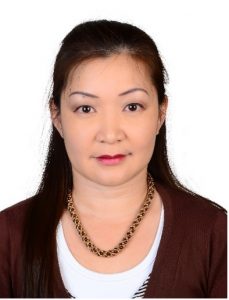 Dr Li-Chen Sim is an Assistant Professor at Khalifa University in the UAE. She is a specialist in the political economy of Russian and Gulf energy and its intersection with international relations. Her research interests include Gulf-Asia exchanges, Russia-China relations in the Middle East and Russia-Gulf interactions. Her most recent book Low Carbon Energy in the Middle East and North Africa was just published by Palgrave last month. Dr Sim holds a PhD from Oxford University.
Dr Li-Chen Sim is an Assistant Professor at Khalifa University in the UAE. She is a specialist in the political economy of Russian and Gulf energy and its intersection with international relations. Her research interests include Gulf-Asia exchanges, Russia-China relations in the Middle East and Russia-Gulf interactions. Her most recent book Low Carbon Energy in the Middle East and North Africa was just published by Palgrave last month. Dr Sim holds a PhD from Oxford University.
Listen to or watch this session here.
Session 3 (Friday, 7 May 2021): Beyond Oil and Dates: Saudi Arabia’s Past, Transition and Future
Speaker: Ms Eman Alhussein, Arab Gulf States Institute in Washington
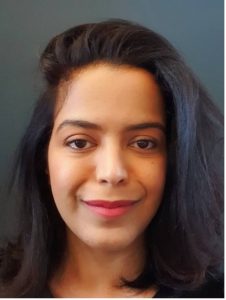 Eman Alhussein is a non-resident fellow at the Arab Gulf States Institute in Washington. Her research focuses on Saudi Arabia and the Gulf region. Ms Alhussein was previously a visiting fellow at the European Council on Foreign Relations and a research fellow at King Faisal Center for Research and Islamic Studies in Riyadh, Saudi Arabia. She holds a MA in Gulf Studies from the Institute of Arab and Islamic Studies at the University of Exeter. She is currently based in Oslo, Norway.
Eman Alhussein is a non-resident fellow at the Arab Gulf States Institute in Washington. Her research focuses on Saudi Arabia and the Gulf region. Ms Alhussein was previously a visiting fellow at the European Council on Foreign Relations and a research fellow at King Faisal Center for Research and Islamic Studies in Riyadh, Saudi Arabia. She holds a MA in Gulf Studies from the Institute of Arab and Islamic Studies at the University of Exeter. She is currently based in Oslo, Norway.
Listen to or watch this session here.
Session 4 (Friday, 14 May 2021): Answering the Five “W”s of Kuwaiti Democracy
Speaker: Dr Tahani Al Terkait, Kuwait
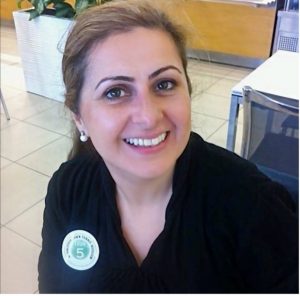 Dr Tahani Al Terkait is a researcher on politics focusing on Kuwait, the Gulf region and the Middle East. She earned her PhD in political science from Durham University, UK. She defended her thesis in 2017, entitled “The Conceptual and Constitutional Underpinnings of Kuwait’s System of Government”. She is also a member at the London-based Centre of International Studies and Diplomacy (CISD), SOAS, where she received her Master’s degree.
Dr Tahani Al Terkait is a researcher on politics focusing on Kuwait, the Gulf region and the Middle East. She earned her PhD in political science from Durham University, UK. She defended her thesis in 2017, entitled “The Conceptual and Constitutional Underpinnings of Kuwait’s System of Government”. She is also a member at the London-based Centre of International Studies and Diplomacy (CISD), SOAS, where she received her Master’s degree.
Before pursuing higher education, Dr Al Terkait worked for Kuwait’s public sector for 15 years, serving her country as a diplomat and consultant in public diplomacy. She served Kuwait as Kuwait’s first female Press Attaché at the Embassy of Kuwait in Washington DC, USA, from 2001 to 2007. Her academic and professional experiences have shaped her research interests in political reforms, human rights and gender equality in the Arab world.
Listen to or watch this session here.
Session 5 (Friday, 28 May 2021): The Omani Odyssey: Renaissance, Modernisation and Unfolding Futures
Speakers: Dr Mohamed Saad Al Muqadam, Sultan Qaboos University and Dr Yousuf Hamed Al Balushi, Chief Economist of Oman Vision 2040
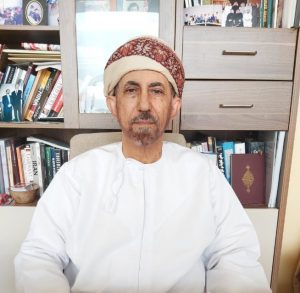 Dr Mohamed Saad Al Muqadam is an Assistant Professor of Oman modern history at Sultan Qaboos University and previously held several senior appointments at the College of Arts of Social Sciences including Assistant Dean for the college, Dean of Students Affairs and as Head of the Department of History. Dr Al Muqadam earned his PhD from the University of Exeter, where he began to dive into the relationship between Oman and Persia. Besides research interests in the sultanate’s history, he has also examined China-Oman relations in depth, among other bilateral relations.
Dr Mohamed Saad Al Muqadam is an Assistant Professor of Oman modern history at Sultan Qaboos University and previously held several senior appointments at the College of Arts of Social Sciences including Assistant Dean for the college, Dean of Students Affairs and as Head of the Department of History. Dr Al Muqadam earned his PhD from the University of Exeter, where he began to dive into the relationship between Oman and Persia. Besides research interests in the sultanate’s history, he has also examined China-Oman relations in depth, among other bilateral relations.
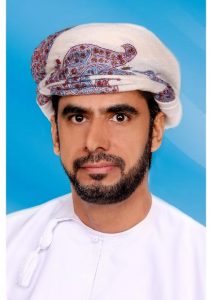 Dr Yousuf Hamed Al Balushi is the Chief Economist of the Oman Vision 2040 taskforce and is passionate about Oman’s development and investment potential. He has served as an advisor on foreign direct investment (FDI) to both Oman’s Supreme Council for Planning and to the International Monetary Fund (IMF). Dr Al Balushi holds a PhD from King’s College London where he explored the impact of FDI on the contribution of the private sector to Oman’s economic development. He has since published in different outlets, as author of the monograph Omani economy: globalization and the winds of change and as co-editor on a Palgrave MacMillan series covering economic diversification in the Gulf.
Dr Yousuf Hamed Al Balushi is the Chief Economist of the Oman Vision 2040 taskforce and is passionate about Oman’s development and investment potential. He has served as an advisor on foreign direct investment (FDI) to both Oman’s Supreme Council for Planning and to the International Monetary Fund (IMF). Dr Al Balushi holds a PhD from King’s College London where he explored the impact of FDI on the contribution of the private sector to Oman’s economic development. He has since published in different outlets, as author of the monograph Omani economy: globalization and the winds of change and as co-editor on a Palgrave MacMillan series covering economic diversification in the Gulf.
Listen to or watch this session here.
Session 6 (Friday, 4 June 2021): The UAE: Federation, the Dubai Model and Abu Dhabi Leadership
Speaker: Dr Aqil Kazim Abdulfattah, UAE University
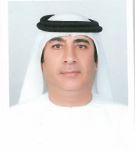
Dr Aqil Kazim is an Assistant Professor in the Department of Government and Society/Sociology Programme at the United Arab Emirates University, Al Ain, UAE. Dr Kazim received his MA and PhD from American University, Washington, DC. He is the author of The United Arab Emirates AD 600 to the Present: A Socio-discursive Transformation in the Arabian Gulf. He served as Dean of Students at American University, Sharjah and as Chair of the Sociology Department at UAEU. He has published numerous articles, including The Rise of Dubai: A Social History of the Commercial Cities in the Gulf and The Construction of the Pearl Industry in the UAE Region in 1869 -1938: its construction, production, and decline. He has also presented in many conferences on topics such as UAE’s demography, urban development and consumerism and edited the Emirati Studies textbook as well.
Listen to or watch this session here.
Session 7 (Friday, 11 June 2021): Qatar: Small State, Big Politics, and the Road to Diversification
Speakers: Ms Zarqa Parvez, Durham University and Mr Omran Hamad Al-Kuwari, Qatar Foundation International (QFI)
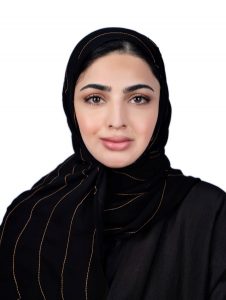 Ms Zarqa Parvez is a PhD candidate at Durham University whose research delves into nationalism, women and state-society relations in the Gulf region. Until December 2020, she was also a lecturer at the Middle Eastern Studies department at Hamad Bin Khalifa University, juggling teaching commitments with doctoral research. She completed her degree at Georgetown University before obtaining a MSc State, Society and Development from SOAS University of London. Some of her past research initiatives encompass an examination of women and status quo in Saudi Arabia as well as others on public policy and identity. She has also led independent research projects related to the development of education and youth in Qatar.
Ms Zarqa Parvez is a PhD candidate at Durham University whose research delves into nationalism, women and state-society relations in the Gulf region. Until December 2020, she was also a lecturer at the Middle Eastern Studies department at Hamad Bin Khalifa University, juggling teaching commitments with doctoral research. She completed her degree at Georgetown University before obtaining a MSc State, Society and Development from SOAS University of London. Some of her past research initiatives encompass an examination of women and status quo in Saudi Arabia as well as others on public policy and identity. She has also led independent research projects related to the development of education and youth in Qatar.
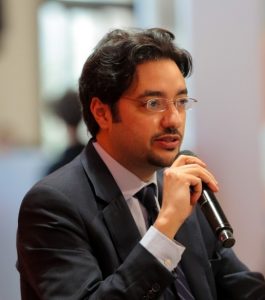 Mr Omran Hamad Al-Kuwari, CEO of Qatar Foundation International (QFI) and a doctoral researcher at University College London’s Institute for Sustainable Resources. Prior to joining QFI, Omran held several key leadership positions in the energy industry between 1999 and 2015 with Qatar Petroleum, ExxonMobil, GreenGulf and South Hook Gas in the UK, Japan and the Middle East. He joined Qatar Foundation’s executive management team, as the Executive Director of the CEO’s office and is now the CEO of QFI. Omran holds a bachelor’s degree in Business Administration from George Washington University and a Master’s degree in Business Administration from City University London, Cass Business School. Omran’s current research is centred around the impact of climate change and decarbonisation on the energy industry, with a particular focus on liquefied natural gas and hydrogen.
Mr Omran Hamad Al-Kuwari, CEO of Qatar Foundation International (QFI) and a doctoral researcher at University College London’s Institute for Sustainable Resources. Prior to joining QFI, Omran held several key leadership positions in the energy industry between 1999 and 2015 with Qatar Petroleum, ExxonMobil, GreenGulf and South Hook Gas in the UK, Japan and the Middle East. He joined Qatar Foundation’s executive management team, as the Executive Director of the CEO’s office and is now the CEO of QFI. Omran holds a bachelor’s degree in Business Administration from George Washington University and a Master’s degree in Business Administration from City University London, Cass Business School. Omran’s current research is centred around the impact of climate change and decarbonisation on the energy industry, with a particular focus on liquefied natural gas and hydrogen.
Listen to or watch this session here.
Session 8 (Saturday, 26 June 2021, 2.30pm to 3.30pm): MEI Salon Cultural Segment I – The Tradition and Sport of Falconry
Speaker: Mr Abdullah Hamdan bin Dalmook, CEO, Hamdan bin Mohammed Heritage Centre

After majoring in political science and completing his studies in the US, Mr Abdullah Hamdan Bin Dalmook began his career by working for the UAE’s Ministry of Interior. Later he was assigned to manage the heritage and the diving villages in Dubai’s Shindagha area and was appointed as its director in 1997. In 2005, he was appointed as the executive director of the championships office of his highness the crown prince of Dubai. In 2013, his highness the crown prince of Dubai issued a decree to establish the Hamdan Bin Mohammed Heritage Centre and Mr Dalmook was appointed as the chief executive officer of it. In 2017, the center’s organisational body was restructured but Mr Dalmook still remains as its Chief Executive Officer to date.
Listen to or watch this session here.
Session 9 (Wednesday, 7 July 2021, 4.30pm to 5.30pm): A Tale of Two Seas: Bahrain’s Political and Economic Transformations
Speaker: Dr Omar Al-Ubaydli, Director of Research, Derasat, Bahrain and Dr Hamad Ebrahim Al-Abdulla, Executive Director, Derasat, Bahrain
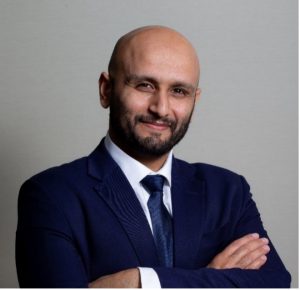 Dr Omar Al-Ubaydli is the Director of Research at Derasat, Bahrain. He is also an affiliated Associate Professor of economics at George Mason University; an affiliated Senior Research Fellow at the Mercatus Center; Adjunct Visiting Professor at the King Fahad University of Petroleum and Minerals; a Non-resident Fellow at the Arab Gulf States Institute in Washington and a Non-resident Fellow at TRENDS Research & Advisory, UAE.
Dr Omar Al-Ubaydli is the Director of Research at Derasat, Bahrain. He is also an affiliated Associate Professor of economics at George Mason University; an affiliated Senior Research Fellow at the Mercatus Center; Adjunct Visiting Professor at the King Fahad University of Petroleum and Minerals; a Non-resident Fellow at the Arab Gulf States Institute in Washington and a Non-resident Fellow at TRENDS Research & Advisory, UAE.
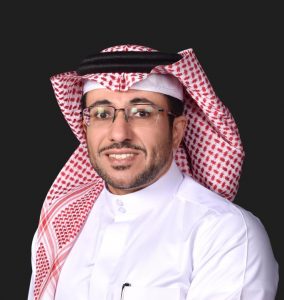 Dr Hamad Ebrahim Al-Abdulla is the Executive Director at Derasat, Bahrain. Before his appointment there in 2020, he was assistant professor of modern and contemporary history at the social sciences department, college of arts, University of Bahrain since 2017. Prior to that, he worked as a media specialist at the General Secretariat for the Gulf Co-operation Council in Riyadh, Saudi Arabia. Over the years, he has published a number of works including pieces on Bahrain, Gulf historiography, medical missions and the challenges of formal education in the region. Dr Al-Abdulla received his BSc and MA in Mass Communication, followed by a PhD in History from the University of East Anglia in the UK in 2016.
Dr Hamad Ebrahim Al-Abdulla is the Executive Director at Derasat, Bahrain. Before his appointment there in 2020, he was assistant professor of modern and contemporary history at the social sciences department, college of arts, University of Bahrain since 2017. Prior to that, he worked as a media specialist at the General Secretariat for the Gulf Co-operation Council in Riyadh, Saudi Arabia. Over the years, he has published a number of works including pieces on Bahrain, Gulf historiography, medical missions and the challenges of formal education in the region. Dr Al-Abdulla received his BSc and MA in Mass Communication, followed by a PhD in History from the University of East Anglia in the UK in 2016.
For the reading materials for this session, please click here.
Session 10 (Thursday, 19 August 2021): MEI Salon Cultural Segment II – A City as Old as Time: Nizwa, Oman
Speaker: Ms Asma Salim Hamoud Al Hajry, Oman’s Ministry of Tourism
Ms Asma Salim Hamoud Al Hajry is the Deputy Director-General of Tourism, Marketing and Promotion at Oman’s Ministry of Tourism. Besides supervising the sultanate’s relations with international markets ranging from European offices to those in Australia and New Zealand, Ms Al Hajry is tasked with reviewing budgetary and media plans in line with Oman’s Vision 2040. She received her MSc in marketing for places and tourism from the University of Leicester and her BA in business studies from Stirling University.
Listen to or watch this session here.
Session 11 (Wednesday, 3 November 2021): Scoring Opportunity: Sport in the Gulf’s Soft Power Armoury
Speaker: Simon Chadwick, Global Professor of Eurasian Sport, Emlyon Business School, Paris
 Simon Chadwick is Global Professor of Eurasian Sport at Emlyon Business School in Paris. He also directs the school’s Centre for the Eurasian Sport Industry (CESI), based in Shanghai. He previously founded and directed the University of London’s Birkbeck Sports Business Centre, and Coventry University’s Centre for the International Business of Sport. In addition, he has worked at several of the world’s most prestigious business schools, including IESE in Spain, Otto Beisheim in Germany, Tsinghua in China and COPPEAD in Brazil. Professor Chadwick has held various positions across Asia and has direct experience of working in the Middle East. His research, writing, consultancy and teaching focuses on the geopolitical economy of sport.
Simon Chadwick is Global Professor of Eurasian Sport at Emlyon Business School in Paris. He also directs the school’s Centre for the Eurasian Sport Industry (CESI), based in Shanghai. He previously founded and directed the University of London’s Birkbeck Sports Business Centre, and Coventry University’s Centre for the International Business of Sport. In addition, he has worked at several of the world’s most prestigious business schools, including IESE in Spain, Otto Beisheim in Germany, Tsinghua in China and COPPEAD in Brazil. Professor Chadwick has held various positions across Asia and has direct experience of working in the Middle East. His research, writing, consultancy and teaching focuses on the geopolitical economy of sport.
Listen to or watch this session here.
Session 12 (Thursday, 9 December 2021, 4pm to 5.30pm): A Compatible Contradiction? Heritage and Modernity in Gulf Cities
Speakers: Mr Sultan Sooud Al-Qassemi, Harvard Kennedy School, Dr Roberto Fabbri, Zayed University, Ms Suha Hasan, KTH Royal Institute of Technology, Ms Lina Ahmad, Zayed University and Mr Marco Sosa, Zayed University
Mr Sultan S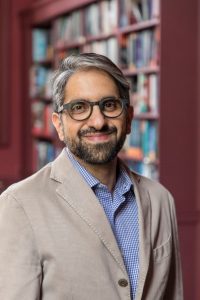 ooud Al-Qassemi is the Kuwait Foundation Visiting Scholar, Middle East Initiative, Fall 2021 at the Harvard Kennedy School. He is also the co-editor of two recently released volumes, Urban Modernity in the Contemporary Gulf (Routledge, 2021) and Building Sharjah (Birkhauser, 2021). Mr Al-Qassemi is also founder of the Barjeel Art Foundation in Sharjah, UAE. He was a MIT Media Lab Director’s Fellow from 2014 to 2016, a practitioner-in-residence at the Hagop Kevorkian Center for Near Eastern Studies at New York University in Spring 2017 and a Yale Greenberg World Fellow in 2018. He was a visiting instructor at the Council of Middle East Studies at Yale University, the Center of Contemporary Arab Studies at Georgetown University, the American University of Paris, the Islamic Civilisation and Societies programme at Boston College and the School of Public Affairs at Sciences Po, Paris.
ooud Al-Qassemi is the Kuwait Foundation Visiting Scholar, Middle East Initiative, Fall 2021 at the Harvard Kennedy School. He is also the co-editor of two recently released volumes, Urban Modernity in the Contemporary Gulf (Routledge, 2021) and Building Sharjah (Birkhauser, 2021). Mr Al-Qassemi is also founder of the Barjeel Art Foundation in Sharjah, UAE. He was a MIT Media Lab Director’s Fellow from 2014 to 2016, a practitioner-in-residence at the Hagop Kevorkian Center for Near Eastern Studies at New York University in Spring 2017 and a Yale Greenberg World Fellow in 2018. He was a visiting instructor at the Council of Middle East Studies at Yale University, the Center of Contemporary Arab Studies at Georgetown University, the American University of Paris, the Islamic Civilisation and Societies programme at Boston College and the School of Public Affairs at Sciences Po, Paris.
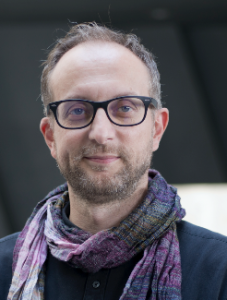 Dr Roberto Fabbri is an architect, researcher and associate professor at Zayed University in the UAE. His professional and academic interests focus on narrative spaces such as heritage buildings and museums, preferably in the Global South. As an architect consultant with the United Nations Development Programme, Dr Fabbri participated in the rehabilitation of the Kuwait National Museum and completed the transformation of the American Missionary Hospital of Kuwait into a cultural hub. In the same period, he was also lead exhibition designer for Dar al-Athar al-Islamiyyah/Al Sabah collection. From 2016 to 2021, he taught at the University of Monterrey in Mexico and prior to that, was teaching at the University of Bologna in Italy and the American University of Kuwait. He regularly participates in international conferences – recently at Yale University, University of Cambridge, King’s College London and the Institut national d’histoire de l’art in Paris. He has published extensively in academic journals, such as Domus; Faces, Journal d’architecture; and the International Journal of Islamic Architecture. He co-edited Urban Modernity in the Contemporary Gulf (Routledge, 2021) and co-authored the double volume Modern Architecture Kuwait 1949-89 (Niggli 2016, 2017). He published two books on the architectural works of Max Bill (Mondadori 2011, inFolio 2017) as well.
Dr Roberto Fabbri is an architect, researcher and associate professor at Zayed University in the UAE. His professional and academic interests focus on narrative spaces such as heritage buildings and museums, preferably in the Global South. As an architect consultant with the United Nations Development Programme, Dr Fabbri participated in the rehabilitation of the Kuwait National Museum and completed the transformation of the American Missionary Hospital of Kuwait into a cultural hub. In the same period, he was also lead exhibition designer for Dar al-Athar al-Islamiyyah/Al Sabah collection. From 2016 to 2021, he taught at the University of Monterrey in Mexico and prior to that, was teaching at the University of Bologna in Italy and the American University of Kuwait. He regularly participates in international conferences – recently at Yale University, University of Cambridge, King’s College London and the Institut national d’histoire de l’art in Paris. He has published extensively in academic journals, such as Domus; Faces, Journal d’architecture; and the International Journal of Islamic Architecture. He co-edited Urban Modernity in the Contemporary Gulf (Routledge, 2021) and co-authored the double volume Modern Architecture Kuwait 1949-89 (Niggli 2016, 2017). He published two books on the architectural works of Max Bill (Mondadori 2011, inFolio 2017) as well.
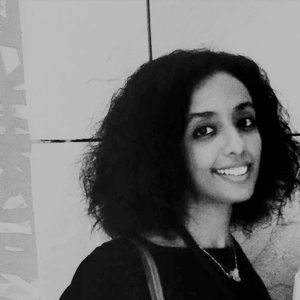 Miss Suha Hasan has worked as an architect on various projects, ranging from private residences to large developments in Bahrain, Dubai and Khartoum and is a lecturer at the University of Bahrain. As a student, she worked as a journalist for a brief period, covering the social beat. Today, her time is divided between KTH Royal Institute of Technology, Stockholm, where she is doing her PhD and Bahrain, where she engages in experimental participatory urban research via public art exhibitions, talks and workshops through Mawane. Miss Suha’s PhD research investigates the absent landscape of architecture in Bahrain and this stems from her interest in post and pre-colonial studies of architecture and urbanism. On one hand, a broad interest in the global history of spatial cultures and their production through transnational and transcultural processes and on the other, specifically those across the Middle East, Africa and South Asia. She is also interested in cross-cultural artistic practices across the region, including its history and legacy and has recently joined the United Nations Development Programme as a Consultant and the Architectural Association as a Visiting School Director.
Miss Suha Hasan has worked as an architect on various projects, ranging from private residences to large developments in Bahrain, Dubai and Khartoum and is a lecturer at the University of Bahrain. As a student, she worked as a journalist for a brief period, covering the social beat. Today, her time is divided between KTH Royal Institute of Technology, Stockholm, where she is doing her PhD and Bahrain, where she engages in experimental participatory urban research via public art exhibitions, talks and workshops through Mawane. Miss Suha’s PhD research investigates the absent landscape of architecture in Bahrain and this stems from her interest in post and pre-colonial studies of architecture and urbanism. On one hand, a broad interest in the global history of spatial cultures and their production through transnational and transcultural processes and on the other, specifically those across the Middle East, Africa and South Asia. She is also interested in cross-cultural artistic practices across the region, including its history and legacy and has recently joined the United Nations Development Programme as a Consultant and the Architectural Association as a Visiting School Director.
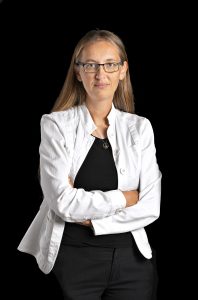 Miss Lina Ahmad holds a Masters from the Architectural Association School of Architecture, London and has more than 10 years of professional experience working across different sectors and project stages in the UAE. Her design work ranges from proposing alternate schemes to detailing and executing architectural packages, participating in various projects’ execution and site supervisions. Ms Ahmad works at Zayed University, Abu Dhabi as an Associate Professor and is also the Chair of Design. Her work, that has been published and presented at conferences worldwide as well as awarded and exhibited, includes contributions towards the UAE’s national pavilion at the 14th Venice Architecture Biennale. Ms Ahmad who is passionate about modern heritage, is an advocate of digital fabrication technology and its impact on regional higher education and the UAE’s creative industry.
Miss Lina Ahmad holds a Masters from the Architectural Association School of Architecture, London and has more than 10 years of professional experience working across different sectors and project stages in the UAE. Her design work ranges from proposing alternate schemes to detailing and executing architectural packages, participating in various projects’ execution and site supervisions. Ms Ahmad works at Zayed University, Abu Dhabi as an Associate Professor and is also the Chair of Design. Her work, that has been published and presented at conferences worldwide as well as awarded and exhibited, includes contributions towards the UAE’s national pavilion at the 14th Venice Architecture Biennale. Ms Ahmad who is passionate about modern heritage, is an advocate of digital fabrication technology and its impact on regional higher education and the UAE’s creative industry.
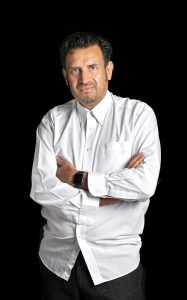 Mr Marco Sosa is an Architect, Associate Professor of Interior Design and the Assistant Dean of Research at Zayed University, Abu Dhabi. Mr Sosa holds a BA (Hons), postgraduate diploma and master’s in architecture and has over 10 years of experience in the industry. In 2012, he published a book, Al Bidiya Mosque, A Visual Essay, about the oldest functional mosque in the UAE. In 2014, Mr Sosa was appointed as the head of design in the curatorial team for the UAE’s first national pavilion at the 14th Venice Architecture Biennale, which chartered the impact of modernist architecture in the Emirates. He has published various academic papers and presented at conferences around the world on architectural photography and his passionate interests, modern heritage in the UAE and the development of design education in the country.
Mr Marco Sosa is an Architect, Associate Professor of Interior Design and the Assistant Dean of Research at Zayed University, Abu Dhabi. Mr Sosa holds a BA (Hons), postgraduate diploma and master’s in architecture and has over 10 years of experience in the industry. In 2012, he published a book, Al Bidiya Mosque, A Visual Essay, about the oldest functional mosque in the UAE. In 2014, Mr Sosa was appointed as the head of design in the curatorial team for the UAE’s first national pavilion at the 14th Venice Architecture Biennale, which chartered the impact of modernist architecture in the Emirates. He has published various academic papers and presented at conferences around the world on architectural photography and his passionate interests, modern heritage in the UAE and the development of design education in the country.
Listen to or watch this session here.
Session 13 (Friday, 21 January 2022): MEI Salon Cultural Segment III – Al Zubarah: The Past, Present and Future of a Pearling Town
Speaker: Dr Ferhan Sakal, Head of Excavation and Site Management Archaeology, Qatar Museums
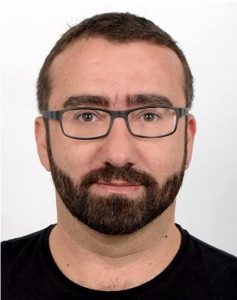
Dr Ferhan Sakal is a Turkish German archaeologist who studied prehistory and ancient near eastern studies at Istanbul University and Eberhard Karls University of Tübingen (Germany). He holds a Masters in ancient near eastern studies and a PhD in near eastern archaeology from Eberhard Karls University of Tübingen. Before moving to Qatar, he worked in several excavation projects in Turkey, Syria, Lebanon, Egypt and Germany and was the field director of multiple excavation and survey projects. He published books, editions and articles on chronology, archaeological excavations and material studies. Dr Sakal has been working at Qatar Museums since 2013 and currently holds the position of Head of Excavation and Site Management at the department of archaeology.
Listen to or watch this session here.
To view the slides used during the event, click here.
Session 14 (Monday, 27 June 2022): MEI Salon Cultural Segment IV – Technological Advances at the Hajj and Umrah
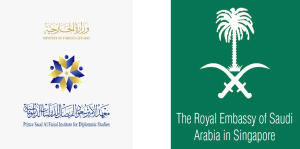

Since the introduction of a quota system for the Muslim pilgrimage in 1988, calls for increased hajj quotas by different countries have been ceaseless. Annually, administrative arrangements, including the deployment of speedy transportation, have been constantly revisited and improved. Technology, particularly the mobile phone, has not only brought ease, and more pilgrims, to the hajj, but has also enhanced the experience. From planning to tracking (via GPS) and the use of PDF guides, technology has substantially increased the flow of useful information to pilgrims.
Covid-19 saw an increase in the use of technology to keep worshippers safe. Besides an online registration system, robots were employed to sanitise the Grand Mosque, and to distribute bottled water for social distancing purposes. As health restrictions are eased and travel becomes increasingly possible, the hajj looks to return to pre-pandemic levels. How will new technologies help organisers and pilgrims alike?
The Middle East Institute (NUS), in collaboration with the Prince Saud Al Faisal Institute for Diplomatic Studies, hosted HE Dr Amr Almaddah, the Deputy Minister for Hajj and Umrah Services, to address these questions and more.
This event is also supported by the Royal Embassy of Saudi Arabia in Singapore.
Speaker: HE Dr Amr Al Maddah, Deputy Minister for Hajj and Umrah Services, Ministry of Hajj and Umrah
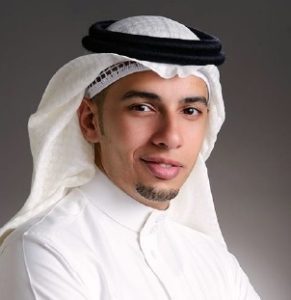
HE Dr Amr Al Maddah is the Deputy Minister for Hajj and Umrah Services at the Ministry of Hajj and Umrah. Dr Almaddah received his PhD in intelligent systems and applied informatics from Osaka University in Japan. After his return to Saudi Arabia, he worked in King Abdullah Petroleum Studies and Research Center before moving to King Abdulaziz University as an academic staff. Prior to his work in the Ministry, Dr. Almaddah served in many senior management roles in big entities in the government and private sectors such as Saudi Research and Marketing Group (SRMG) and The Prince Mohammed bin Salman Foundation (MiSK). Dr Almaddah speaks many languages fluently and is always seeking opportunities to make a difference.
Listen to or watch this session here.
Session 15 (Tuesday, 30 Aug 2022): Wither Self-Sufficiency? Unpacking the UAE’s Food Security Strategy
Speaker: H.E. Dr. Abdulnasser Al Shaali, the UAE’s Assistant Minister for Economic and Trade Affairs
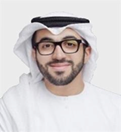
H.E Dr. Alshaali was appointed as the Assistant Minister of Economic and Trade Affairs (ETA) in January 2020, where he works closely with H.E Ahmed Al Sayegh, the Minister of State in charge of the economic sector in the ministry. In his capacity, Alshaali is responsible for facilitating the implementation of the country’s economic policy towards other countries, promoting the country’s economic, commercial and financial interests, and ensuring the necessary support is provided to facilitate foreign investments growth and that such investments are in line with the country’s bilateral and multilateral relations policy. Concurrent to this role, in January 2021, he was tasked with overseeing the Policy Planning Department (PPD).
Prior to that, Dr. Alshaali was Director of ETA since March 2019. He was also the Acting Director and the Director of PPD from December 2016 to February 2019. As Director of PPD, he led a department that reports to the Minister of Foreign Affairs and International Cooperation. Dr. Alshaali is also Vice Chairman at the UAE International Investors Council (IIC). His board memberships include the Anwar Gargash Diplomatic Academy (AGDA) Board of Trustees and the Zayed Unviersity (ZU) Council.
Dr. Alshaali joined the Ministry in March 2013 as an Economist in the Office of the Foreign Minister, before being appointed as the Head of Research and Content Management in November 2014. In November 2015, he was assigned as Deputy Director in PPD. Prior to joining the Ministry, Dr. Alshaali worked in the Revenue Optimisation Division of the Yield Management Department at Emirates Airline. He was also the Financial Manager in the family’s business between the years 2010 and 2012.
Listen to or watch this session here.
Session 16 (Tuesday, 21 March 2023): Pushing the Boundaries: Gender and Climate Change in the GCC
Speaker: Miss Rumaitha Al Busaidi, Board Director, Environment Society of Oman
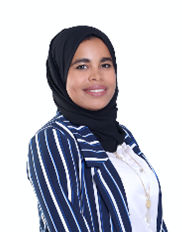 Rumaitha Al Busaidi is an Omani marine scientist and environmental activist working on sustainable solutions to climate change. Her 2021 TED talk examining women as the key to our climate future has garnered more than a million views. Rumaitha serves on the board of the only environmental NGO in the country, the Environment Society of Oman, and actively works with the Omani government on sustainable diversification strategies in food production as well as climate change adaptation strategies. Internationally, she has advised the Biden administration on developing a climate resilience standard for US foreign aid focusing on empowering women as a form of climate mitigation, and the Arab League on empowering Arab youth in the climate change negotiations space.
Rumaitha Al Busaidi is an Omani marine scientist and environmental activist working on sustainable solutions to climate change. Her 2021 TED talk examining women as the key to our climate future has garnered more than a million views. Rumaitha serves on the board of the only environmental NGO in the country, the Environment Society of Oman, and actively works with the Omani government on sustainable diversification strategies in food production as well as climate change adaptation strategies. Internationally, she has advised the Biden administration on developing a climate resilience standard for US foreign aid focusing on empowering women as a form of climate mitigation, and the Arab League on empowering Arab youth in the climate change negotiations space.
Hailing from Muscat, Rumaitha is a member of the first-ever Arab Youth Council on Climate Change. She is also a co-chair of the World Economic Forum’s Davos Lab, where she co-authored the youth recovery plan featuring policy recommendations from over 2 million young people across the globe. Rumaitha holds an MPA from Harvard University, and is coined as the first female soccer analyst in the Arab World and the youngest Omani to step foot on the South Pole.
Listen to or watch this session here.
Session 17 (Tuesday, 16 May 2023): Communicating Credibility and Certainty in Qatar’s Foreign Policy
Speaker: Mr Ibrahim Sultan Al-Hashmi, Director of Media & Communication Department, Ministry of Foreign Affairs, the State of Qatar
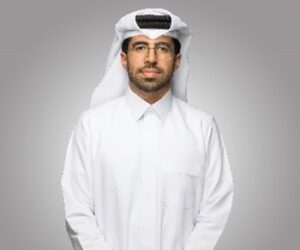 Mr. Ibrahim Al-Hashmi is the Director of Media and Communication Department at the Ministry of Foreign Affairs (MoFA), the State of Qatar. Since joining MoFA, Mr. Al-Hashmi served in the Office of the Assistant Minister of Foreign Affairs in the fields of Communication, Public Diplomacy, and Special Projects. He is a member of the Doha Forum team, the annual most prominent platform for dialogue in the region. He also served in the permanent delegation of the State of Qatar in Geneva during the 47th and 48th sessions of the United Nations Human Rights Council.
Mr. Ibrahim Al-Hashmi is the Director of Media and Communication Department at the Ministry of Foreign Affairs (MoFA), the State of Qatar. Since joining MoFA, Mr. Al-Hashmi served in the Office of the Assistant Minister of Foreign Affairs in the fields of Communication, Public Diplomacy, and Special Projects. He is a member of the Doha Forum team, the annual most prominent platform for dialogue in the region. He also served in the permanent delegation of the State of Qatar in Geneva during the 47th and 48th sessions of the United Nations Human Rights Council.
Mr. Ibrahim Al-Hashmi served as the Secretary of the Media Committee of the Supreme Committee for Crisis Management during the first wave of the pandemic, which worked effectively with the state authorities to develop and to follow up with the media plans related to the COVID Pandemic. The media committee also organized the press conferences of the Supreme Committee for Crisis Management.
Session 18 (Wednesday, 16 August 2023): Hope and an Eye on the Future: The UAE’s Space Sector
Speaker: Mr Ali Al Shehhi, Director of the National Space Science and Technology Center (NSSTC), UAE University
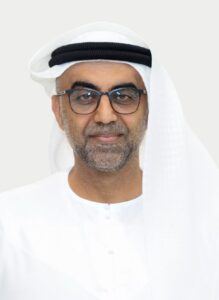 Ali Al Shehhi has more than 33 years of experience working in leadership positions in the UAE Air Forces. He has a Bachelor’s degree in aviation science Higher college of Technology (UAE), and a Master’s degree in management and Comms. Sorbonne University (UAE). Ali joined the UAEAF in 1988 when he started flying as a pilot in the Airforce Academy in Pakistan. In 1997 he worked in Air Force Intelligence and became the satellite ground resaving station manager in the year 2000.
Ali Al Shehhi has more than 33 years of experience working in leadership positions in the UAE Air Forces. He has a Bachelor’s degree in aviation science Higher college of Technology (UAE), and a Master’s degree in management and Comms. Sorbonne University (UAE). Ali joined the UAEAF in 1988 when he started flying as a pilot in the Airforce Academy in Pakistan. In 1997 he worked in Air Force Intelligence and became the satellite ground resaving station manager in the year 2000.
Ali managed many projects inside and outside the country, most notably the Falcon Eye Program, which started in 2013 in Toulouse, France. In addition to that, he led the Space Reconnaissance Center in Abu Dhabi until 2021. Recently, Mr. Ali decided to take a new direction in his career to support the research, development, and education sector in the country, where he joined the UAE University 2022 as the director of the National Space Science and Technology Center.
Listen to or watch this session here.
Session 19: Thursday, 6 Nov 2025, 3pm – 4pm SGT
Strategic UAE: The Engine Behind the UAE’s AI Vision
Launched in 2025 by G42 with partners including OpenAI, Oracle, NVIDIA, Cisco, and SoftBank, Stargate UAE is a landmark AI supercomputing project. As part of a $500 billion global AI infrastructure initiative, it will feature a 1-gigawatt computer cluster, expanding to 5 GW — the largest outside the United States. Aligned with both the UAE’s Vision 2031 and National AI Strategy 2031, the Stargate AI cluster serves to reinforce national digital sovereignty, economic diversification, and sustainable innovation with the use of nuclear and solar energy.
The Middle East Institute hosted speakers from the Emirates Center for Strategic Studies and Research (ECSSR) in a webinar to explore Stargate’s scale, sustainability, strategic goals, and its role in shaping regional AI leadership.
Speakers:
 Ahmed El Safty is an economic advisor at the Emirates Center for Strategic Studies and Research (ECSSR), with over 30 years of experience in economic policy, development finance, and strategic research. His career spans leading roles in regional and international institutions, policy think tanks, and academia.
Ahmed El Safty is an economic advisor at the Emirates Center for Strategic Studies and Research (ECSSR), with over 30 years of experience in economic policy, development finance, and strategic research. His career spans leading roles in regional and international institutions, policy think tanks, and academia.
Prior to joining the ECSSR, Dr El Safty served as a faculty member at the American University in Cairo (AUC) and directed the Delta Research Centre, a consultancy agency based in Cairo. He previously led the Loans and Technical Assistance Division at the Arab Monetary Fund in Abu Dhabi and provided consultancy services to the International Monetary Fund in Washington, DC. He began his professional journey as an economist at the Central Bank of Egypt.
Dr El Safty has advised policymakers across 12 MENA countries, offering technical support in economic policy formulation and implementation. His work focuses on macroeconomic stability, fiscal and monetary policy, and regional economic cooperation. His current research interests centre on geoeconomics, the economic impact of emerging technologies, global logistics and connectivity, and strategic resource management.
He holds a PhD and MSc in International Economics and Finance from Brandeis University (Massachusetts, USA).
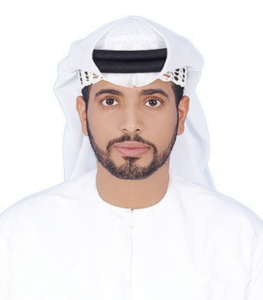
Ahmed Alefari is a researcher at the Emirates Center for Strategic Studies and Research (ECSSR), specialising in Artificial Intelligence and Cybersecurity within the Advanced Sciences and Artificial Intelligence Department. His research focuses on the geopolitical and security impacts of emerging technologies, particularly on how AI systems and cyber operations are transforming global power structures and national security frameworks.
Mr Alefari earned his Bachelor’s degree in Engineering Management Information and Systems from Southern Methodist University (Texas, USA) in 2021, where his work on developing an AI-based predictive model for detecting corporate bankruptcy was recognised. He also completed an intensive summer program on technology-drive management at the Singapore Management University (SMU) in 2019.
. . . . . . . . . . . . . .
Listen to or watch this session here.
About the Speakers

Economic Advisor
Emirates Center for Strategic Studies and Research (ECSSR)
Ahmed El Safty is an economic advisor at the Emirates Center for Strategic Studies and Research (ECSSR), with over 30 years of experience in economic policy, development finance, and strategic research. His career spans leading roles in regional and international institutions, policy think tanks, and academia.
Prior to joining the ECSSR, Dr El Safty served as a faculty member at the American University in Cairo (AUC) and directed the Delta Research Centre, a consultancy agency based in Cairo. He previously led the Loans and Technical Assistance Division at the Arab Monetary Fund in Abu Dhabi and provided consultancy services to the International Monetary Fund in Washington, DC. He began his professional journey as an economist at the Central Bank of Egypt.
Dr El Safty has advised policymakers across 12 MENA countries, offering technical support in economic policy formulation and implementation. His work focuses on macroeconomic stability, fiscal and monetary policy, and regional economic cooperation. His current research interests centre on geoeconomics, the economic impact of emerging technologies, global logistics and connectivity, and strategic resource management.
He holds a PhD and MSc in International Economics and Finance from Brandeis University (Massachusetts, USA).

Researcher
Emirates Center for Strategic Studies and Research (ECSSR)
Ahmed Alefari is a researcher at the Emirates Center for Strategic Studies and Research (ECSSR), specialising in Artificial Intelligence and Cybersecurity within the Advanced Sciences and Artificial Intelligence Department. His research focuses on the geopolitical and security impacts of emerging technologies, particularly on how AI systems and cyber operations are transforming global power structures and national security frameworks.
Mr Alefari earned his Bachelor’s degree in Engineering Management Information and Systems from Southern Methodist University (Texas, USA) in 2021, where his work on developing an AI-based predictive model for detecting corporate bankruptcy was recognised. He also completed an intensive summer program on technology-drive management at the Singapore Management University (SMU) in 2019.
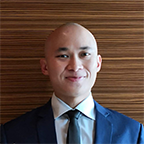
[Moderator] Dr. Clemens Chay is a research fellow at the National University of Singapore’s Middle East Institute. His research focuses on the history and politics of the Gulf states, with a particular emphasis on Kuwait, Oman and Qatar. At MEI he spearheads a public education series entitled “Bridging the Gulf”. His recent academic publications include a chapter that examines Kuwait’s parliamentary politics in The Routledge Handbook of Persian Gulf Politics (2020), a chapter in the edited volume Informal Politics in the Middle East (Hurst, 2021), and a study appearing in the Journal of Arabian Studies, titled “The Dīwāniyya Tradition in Modern Kuwait: An Interlinked Space and Practice.” His commentaries also feature across different outlets, including ISPI, KFCRIS, and AGSIW. He is currently working on a book project related to Kuwait’s diwaniyas (affectionately known as diwawin, and more widely known as majalis outside Kuwait), the reception rooms for informal meetings that have implications for society, politics and diplomacy.
Prior to joining MEI, Dr. Chay was the Al-Sabah fellow at Durham University, where he taught and completed his PhD in Middle Eastern and Islamic studies, and where he also received an MSc in defence, development and diplomacy. He is also a Sciences Po Paris alumnus, having read his BA at the Menton campus.

